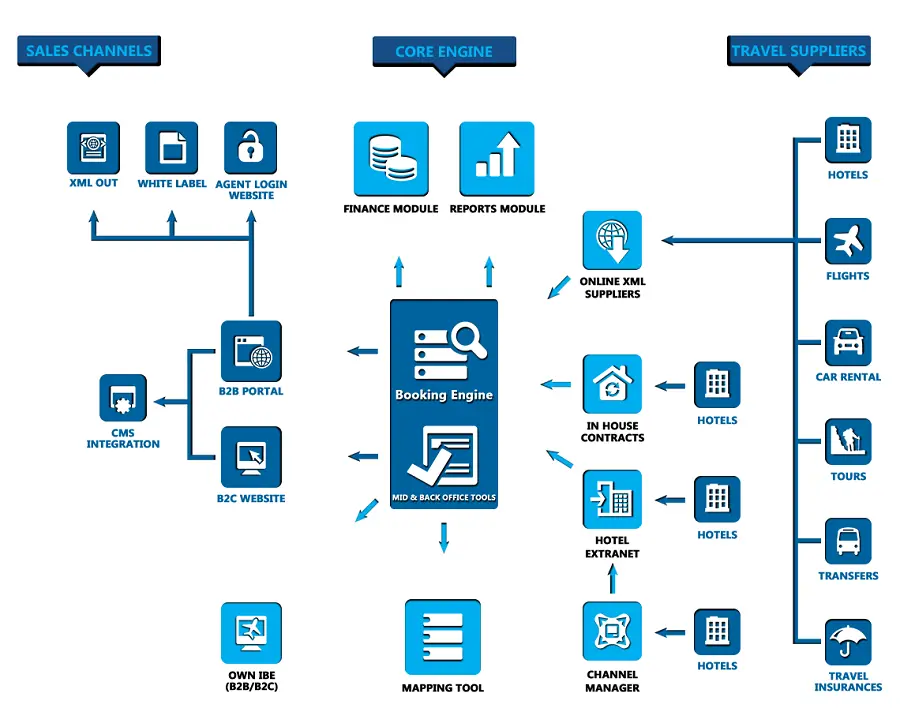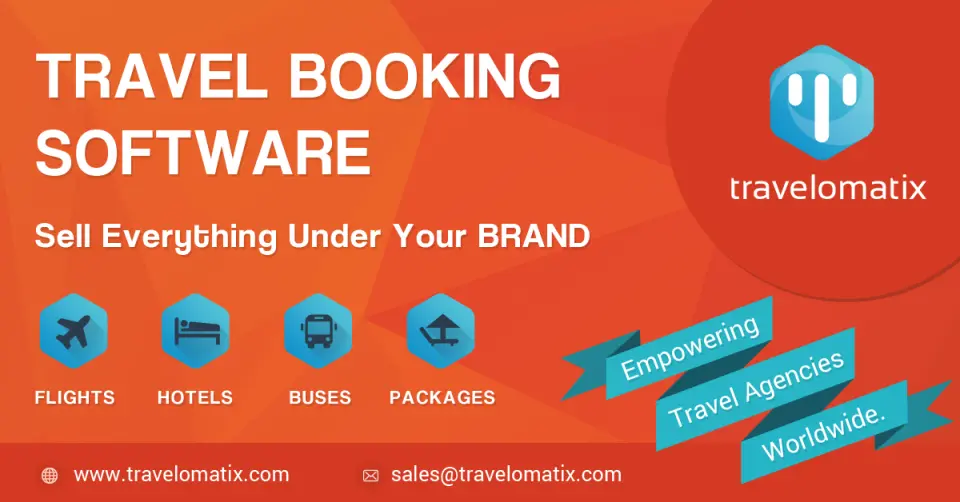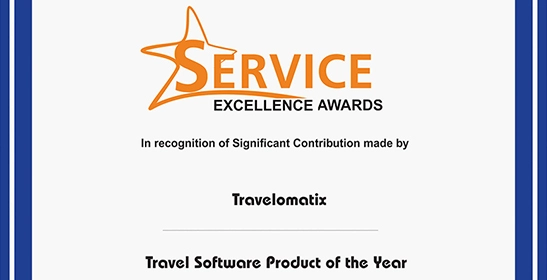How to Develop B2B Travel Portal in Egypt (2024)
12 July, 2024
Ryan
A B2B travel portal is an online platform designed specifically for businesses to facilitate travel bookings and management for their clients or employees. These portals serve as intermediaries between travel suppliers—such as airlines, hotels, and car rental services—and travel agents or corporate travel departments. By aggregating a wide range of travel services in one place, B2B travel portals enable businesses to streamline the booking process, often offering customized solutions, bulk pricing, and special deals tailored for corporate needs.
The demand for
B2B travel portal in Egypt
has been steadily increasing, driven by the growth of the travel and tourism industry and the rising number of businesses seeking efficient travel management solutions. As more companies recognize the importance of streamlined travel processes to optimize costs and enhance employee productivity, they are turning to B2B platforms that offer comprehensive booking options, competitive pricing, and advanced features. The shift towards digital solutions in the corporate sector, coupled with a growing preference for hassle-free travel arrangements, has made these portals essential tools for travel agents and corporate travel departments.
As per the current market research, the global tourism market size is expected to record a CAGR of 3.7% from 2023 to 2032. In 2023, the market size is projected to reach a valuation of US$ 8,880 Billion. By 2032, the valuation is anticipated to
reach US$ 12,314 Billion. ‘All-in-one-place’ online travel portal platforms have improved the user experiences to another level. According to
Statista, OTA revenue is expected to show an annual growth rate of 10.8% over the next five years.
Travelomatix empowers global travel agencies, DMCs and corporate travel management companies by providing next-generation
b2b travel agent portal
solutions and customer experience services. We develop optimized key travel technology applications, including reservation systems, internet booking engines, Passenger Service Systems (PSS), departure control systems, and more. As a leading
travel portal development company, Travelomatix facilitates the seamless interconnection of business processes, empowering companies to swiftly adapt to evolving demands.
How to Develop Travel Agency Software in Egypt : A Quick Guide in 8 Steps
Developing a
b2b travel agency portal in Egypt
involves several key steps. Do have a look at following steps
Step 1 : Market Research and Analysis
Conduct thorough research to understand the needs of your target audience, including travel agents, corporate clients, and suppliers. Analyze competitors to identify gaps and opportunities in the market.
Step 2 : Define Features and Functionality
Outline the essential features your B2B travel portal will offer, such as booking management, real-time inventory, customizable itineraries, payment processing, and reporting tools. Consider user roles and permissions for different stakeholders.
Step 3 : Choose the Right Technology Stack
Select a suitable technology stack for B2B travel agent portal. This includes the front-end (e.g., React, Angular), back-end (e.g., Node.js, Python), and database systems (e.g., MySQL, MongoDB). Ensure scalability and security in your choices.
Step 4 : Develop User Interface (UI) and User Experience (UX)
Design an intuitive and user-friendly interface for B2B travel software platform. Prioritize ease of navigation and accessibility, ensuring that users can quickly find and book travel services. Incorporate responsive design for mobile compatibility in your travel booking portal.
Step 5 : Integrate Travel APIs
Connect your b2b travel portal to various travel service APIs (e.g., flight api, hotels, car rentals) to access real-time data on availability and pricing. Ensure that these integrations are seamless and reliable.
Step 6 : Implement Payment Solutions
Set up secure payment gateways to facilitate transactions. Offer multiple payment options (credit/debit cards, net banking, e-wallets) to cater to different user preferences and ensure compliance with financial regulations.
Step 7 : Testing and Quality Assurance
Conduct rigorous testing to identify and resolve any bugs or issues. Test all functionalities, including booking processes, payment gateways, and user account management, to ensure a smooth user experience.
Step 8 : Launch and Marketing:
Once testing is complete, launch your portal and implement a marketing strategy to attract users. Utilize digital marketing, SEO, and partnerships with travel agencies to promote your portal and drive user engagement.
Important Benefits of B2B Travel Agent Portal
B2B travel agent portal offers numerous benefits that enhance operational efficiency and customer satisfaction. By automating booking processes and managing customer relationships, agencies can save time and reduce manual errors. This travel technology typically provides real-time access to inventory and pricing from various suppliers, allowing agents to offer competitive options to clients. Additionally, integrated payment processing ensures secure transactions, while itinerary management tools help create detailed and personalized travel plans, leading to improved customer experiences.
Furthermore,
travel portal software
equips agencies with valuable analytics and reporting tools. These features enable agencies to monitor sales trends, customer preferences, and operational performance, facilitating data-driven decision-making. By streamlining operations and enhancing service quality, travel agency software not only helps agencies grow their business but also fosters long-term customer loyalty, essential in a competitive travel market.
What software do travel agents use?
Travel agents typically use a range of software solutions to manage their operations and enhance service delivery. One of the primary tools is B2C B2B booking management software, which enables agents to search for and
book flights, hotels, and other travel services efficiently. This software often integrates with Global Distribution Systems (GDS) like Amadeus, Sabre, or Travelport, providing real-time access to inventory and pricing from various suppliers. Additionally, many agencies utilize customer relationship management (CRM) software to track client interactions, preferences, and history, allowing for personalized communication and targeted marketing efforts.
Beyond booking and CRM, travel agencies may also employ itinerary planning tools to create and share detailed travel itineraries with clients, ensuring all aspects of the trip are organized. Accounting and invoicing software is also essential for managing finances, processing payments, and generating reports. Finally, analytics and reporting tools help agencies monitor sales performance, customer behavior, and market trends, enabling data-driven decision-making that can enhance operational efficiency and growth. Together, these
software solutions form a comprehensive ecosystem that empowers travel agents to provide exceptional service and compete effectively in the market.

Key Features of B2B Travel Portal Software Platform
Flight Ticket Booking
The
travel technology platform is connected to the flight Global Distribution System (GDS) via web services, enabling the retrieval of online flight inventory. This information is then presented on the application's front-end in a specified UI/UX format. Upon choosing a particular flight from the search results, users are directed to the payment gateway for booking confirmation and the generation of a Passenger Name Record (PNR).
Hotel Booking
The travel agency system conducts searches for hotel deals using both Global Distribution Systems (GDS) and APIs through web services. It identifies the lowest tariffs per room per night. Once a specific hotel is chosen, users are directed to the payment gateway for booking, culminating in the generation of a voucher.
Car Booking
The
travel agent software
performs searches within its Central Reservation System (CRS) inventory and external APIs to determine the optimal options in a given city based on user input. Upon selecting a preferred result, the system facilitates redirection to the payment gateway for seamless transaction processing.
Holiday Packages
CMS driven domestic and international holiday packages will be designed as per the client requirement and will be connected through payment gateway or online form enquiry in proposed travel portal development solution.
Bus Booking
Travel booking software will search the CRS (own inventory) and API of Bus and will find out the best possible option available in a particular city as per the search by the user. On selecting one result it will be redirected to the payment gateway.
Forex (Foreign Money Exchange)
As a leading
travel software company
, we set the module in admin to put the updated rates of currencies on what price they purchase and sale that particular currency. It can be processed through payment gateway if somebody wants to make the payment through credit card.
Payment Gateway Integration
Online payment gateway will be integrated to make the online payments by the customer. Online payment can be through credit cards or multiple payment gateway system to make it a globally accepted travel GDS portal.
SMS Gateway Incorporation
SMS API will be incorporated to send the sms to the client at the time of confirmation of booking or PNR creation.
B2B Agency Accounts
The
comprehensive travel tech system incorporates a multilayered admin console. Agents are provided with a login facility to add funds to their accounts, subject to a predetermined cutoff limit. Upon logging into the portal, agents can utilize their deposit accounts to book air tickets and hotel deals, up to the specified cutoff limit. Once this limit is reached, agents are restricted from further bookings through their deposit accounts but are given the alternative to use a credit card for subsequent reservations. This system ensures efficient account management and a seamless booking process for agents. Agents will get the different options i.e.
- To create sub users
- Check different type of reports of bookings
- Check the booking status
- Can cancel the booking (if available with API)
- Can check the vouchers and Invoices
- Commission Generated
How a B2B travel portal software can transform your travel & hospitality business?
B2B travel agency portal can significantly transform your travel business by streamlining operations and enhancing customer experiences. With automated booking systems, agents can quickly
secure & book flights, accommodations, and other services, reducing manual errors and saving valuable time. The software’s customer relationship management (CRM) features allow for personalized communication and tailored offerings based on client preferences, fostering stronger relationships and improving overall satisfaction. This efficiency not only boosts productivity but also enables agencies to handle a larger volume of clients with ease.
Moreover, the analytical tools embedded in travel agency software provide insights into sales trends and customer behavior, empowering agencies to make informed business decisions. By leveraging this data, agencies can develop targeted marketing strategies, optimize pricing, and identify new business opportunities. This strategic approach, combined with enhanced service delivery, positions travel agencies to adapt to changing market dynamics, ultimately driving growth and ensuring long-term success in a competitive landscape.
Key benefits of choosing Travelomatix as your B2B travel software development partner -
Choosing the right
travel portal providers
can have significant positive impacts on a business in the travel and tourism industry. Thats why partnering with Travelomatix will have following benefits:
Innovative Solutions - A reliable travel technology company will offer innovative solutions that align with industry trends, helping your business stay competitive and meet evolving customer demands.
Operational Efficiency - The right partner provides tools and platforms that enhance operational efficiency, streamlining processes such as booking, reservations, and customer management.
Scalability - A suitable partner will offer scalable solutions, allowing your business to expand its operations seamlessly without major disruptions.
Global Connectivity - Integration with global distribution systems (GDS) and other relevant APIs like
flight aggregators ensures access to a wide range of travel services and suppliers worldwide.
Enhanced Customer Experience - Innovative features and user-friendly interfaces contribute to an enhanced customer experience, from booking to post-trip interactions.
Cost-Effectiveness - The right partner provides cost-effective solutions, giving your business value for money without compromising on quality.
Security and Compliance - A reliable partner prioritizes security, implementing robust measures such as encryption and compliance with industry standards to protect sensitive customer data.
Customer Support - Responsive and efficient customer support from the technology partner helps address issues promptly, ensuring smooth operations and customer satisfaction.
Customization Options - Flexibility and customization options allow your business to tailor the technology to its unique needs, reflecting your brand and specific requirements.
Integration Capabilities - Seamless integration with other business tools (e.g., CRM systems, accounting software) ensures a cohesive and connected operational environment.
Data Analytics and Reporting - Advanced analytics and reporting functionalities provide valuable insights into customer behavior, helping your business make informed decisions and optimize strategies.
Innovative Features - Regular updates and the introduction of innovative features keep your business at the forefront of technological advancements, contributing to long-term competitiveness.
Training and Onboarding Support - The right partner offers training and onboarding support to ensure your team can effectively use the technology, maximizing its benefits for your business.
Choosing the right travel technology company is a strategic decision that can positively impact various aspects of
starting your travel agency online.

Why do travel agents need B2C B2B travel agent portal to setup OTA?
Travel agents need B2C
B2B travel portal
to establish an Online Travel Agency (OTA) because it provides the essential tools for managing a multi-channel distribution model efficiently. This software enables travel agents to collaborate with various suppliers, including airlines, hotels, and car rental services, allowing them to offer a diverse range of travel products to their clients. By centralizing these operations, B2C B2B software simplifies inventory management, booking processes, and pricing strategies, ensuring that agents can quickly respond to customer inquiries and offer competitive packages.
Additionally, B2B B2C travel portal software and
white label travel portals enhance scalability and flexibility, which are crucial for an OTA’s growth. It allows travel agents to easily onboard new suppliers, expand their product offerings, and reach broader markets without significant operational overhead. The integration of payment gateways, reporting tools, and customer relationship management features further enables agents to track sales performance and improve customer engagement. This comprehensive approach not only streamlines operations but also positions travel agents to effectively compete in the increasingly digital travel landscape.












